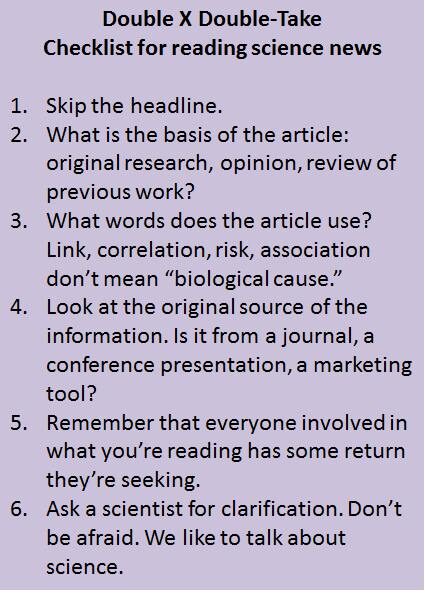Maxfield Sparrow unstrangemind.com Photo © barbara w | Flickr/Creative Commons [image: Hands on a typewriter keyboard, at a sunny wooden desk, next to a drink on a crocheted white doily, amidst some plucked green leaves.] The last decade has seen a blossoming of blogs, articles, books, and documentary films about autism, authored by actually Autistic people. This is an exciting time of growth for Autist-created content about autism, and I want to encourage all Autistic people to document their lives: whether in a private journal, or to share with the public. There are great personal and community benefits that come from Autistic people writing about our lives—especially when we write about emotions, victories, and challenges and not just the factual events by themselves, although any autobiographical writing is helpful to the writer as well as to others if they decide to share what they’ve written. Michel Foucault, the postmodern philosopher,…
Tag: health
Jennifer Byde Myers jennyalice.com iEmergency+ application Create your own lock-screen with important information. I just got the paperwork from Jack’s school to set all of our records straight for the next school year. I know… already, summer is flying by. I scanned through the printed information I filled out from last year and got stopped at that emergency contact section again. It is a list that really defines the borders of my close-knit community. In an emergency, who can care for your child with special needs? Most of the time life goes along just swimmingly, but things happen; cars break down on the way to pick-up, I broke my leg once, we live in earthquake country. I have a collection of people that I know can take care of my child and keep him safe. It’s a short list, and I wouldn’t ask many on that list to even babysit…
Emily Willingham doublexscience.blogspot.com www.ThinkingAutismGuide.com Handy short-form version. [image: Light purple vertical rectangle, with black text reading: Double X Double-Take Checklist for reading science news 1. Skip the headline. 2. What is the basis of the article: original research, opinion, review of previous work? 3. What words does the article use? Link, correlation, risk, association don’t mean “biological cause” 4. Look at the original source of the information. Is it from a journal, a conference presentation, a marketing tool? 5. Remember that everyone involved in what you’re reading has some return on what they’re seeking. 6. Ask a scientist for clarification. Don’t be afraid. We like to talk about science.] You’ve probably seen a lot of headlines lately about autism and various behaviors, ways of being, or “toxins” that, the headlines tell you, are “linked” to it. Maybe you’re considering having a child and are mentally tallying up the various risk factors…

